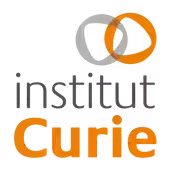
Paediatric cancers: specific challenges
Although rare, childhood and adolescent cancers account for 35,000 new cases a year in Europe (1,800 in France), with more than 60 different types.
The probability of cure in Europe is around 80%, but there are major inequalities between the different types of cancer and between countries. For patients who are cured (over 400,000 in Europe), the challenge is to reduce long-term sequelae.
Despite progress, cancer remains the leading cause of death by disease among young people. The fight against paediatric cancers is a priority in France (Ten-Year Cancer Control Strategy) and in Europe (European Beating Cancer Plan), with the aim of curing more children, better, and reducing inequalities.
It is essential to speed up the development and marketing of new treatments and diagnostics. This is why the regulatory frameworks in the United States and Europe are being strengthened - in particular, requiring all manufacturers to include paediatric development in the development plan for an anti-cancer drug - to meet the unmet needs of children. Significant progress has been made over the last 10 years (sequencing, experimental models, precision medicine, biomarkers), and it is now crucial to turn these advances into therapeutic solutions.
The Paediatric Cancers Working Group
In December 2023, the PSCC created a working group dedicated to paediatric cancers, in partnership with the European ITCC network and Sanofi. This group brings together players from industry, academia, biotechs, start-ups and associations, to stimulate collaboration, innovation and the sharing of knowledge in paediatric cancer therapy. In addition to Sanofi and ITCC, which initiated the project, it includes key partners such as Servier, Institut Curie, Gustave Roussy, ITCC-P4, Life Arc and Imagine for Margo.










Support tailored to the challenges of paediatric cancers
Projects supported by the PSCC can benefit from targeted support for paediatric cancers, thanks in particular to the expertise of the ITCC and the ITCC-P4 pre-clinical platform.
Analysis of the paediatric potential of projects supported by the PSCC
Projects selected by the PSCC are reviewed by paediatric cancer experts to determine and measure their development potential for paediatric cancers. Where appropriate, the terms and conditions and possible support are presented to the project for its full information.
Access to paediatric cancer expertise
Access to specialized expertise is provided by the ITCC consortium, which offers advice to companies (start-ups, biotechs, medium-sized and large pharmaceutical companies) considering the paediatric development of their anticancer agents in the context of European and US regulations. This advice covers the relevance or otherwise of paediatric development, the design of a pediatric paediatric development plan to meet unmet needs, and support for interactions with regulatory authorities.
Preclinical proof-of-concept support
The ITCC-P4 platform, a not-for-profit entity, generates preclinical data on drugs and combinations in experimental paediatric cancer models for industrial and academic clients. As part of a European public-private partnership under the Innovative Medicine Initiative 2 programme, a panel of over 350 xenografts newly derived from patient tumors tumours has been established and characterized both molecularly (full sequencing and methylome) and pharmacologically (efficacy of standard treatments relevant to each of the paediatric cancers). High-quality, regulatory-grade data are produced by one of ITCC P4's three partner Contract Research Organizations with experts per pathology. Data are the property of the customer. ITCC-P4 has been recognized as a "non-clinical working group stakeholder” by the European Medicines Agency.
Organization of a Pediatric Cancer Hackathon
Relive the highlights of 2024 in pictures.
In 2024, we launched the very first Hack4Hope, an innovative hackathon dedicated to paediatric cancers that will now become an annual event. This first edition, held at Futur4Care, brought together 30 experts, 10 shortlisted projects and a wide audience, fostering a unique collaboration between academia, industry, start-ups and patient associations.
TheraSonic
TheraSonic is developing a non-invasive ultrasound-based medical device for temporary, targeted opening of the blood-brain barrier, enabling the treatment of brain tumours.
1st place
DeepLife
(also People's Choice Award) has developed an artificial intelligence system for making digital twins of “infiltrating brain stem gliomas”. Thanks to this tool, it should soon be easier to predict the evolution of tumours and the effectiveness of treatments.
2nd place
HEPHAISTOS-Pharma
designs and develops a new generation of immunotherapies for oncology.
3rd place
Vesynta
This UK-based company is developing a pharmacokinetic and pharmacodynamic tool (DosoLogic) to optimize the dosage of anti-cancer drugs for children. This project was selected by patient representatives and supported by Imagine for Margo - Children without Cancer.
Family Heart Award
Discover the 2024 Winners:


























